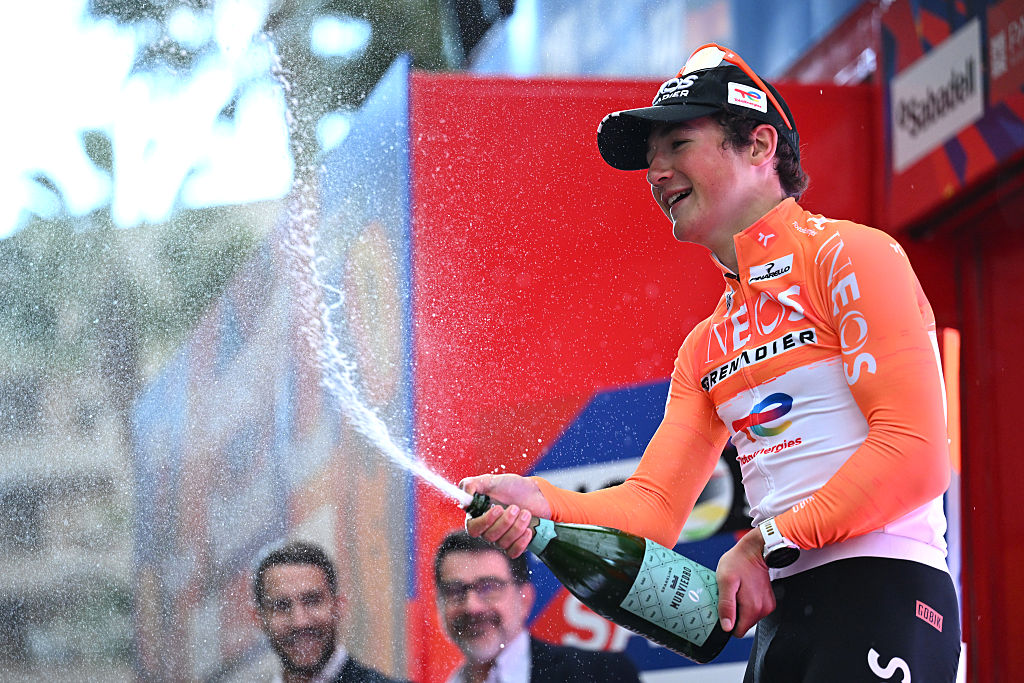Vuelta a Espana leader Simon Yates survives fraught stage after Pinot attacks
Briton stays in good shape as he holds the overall lead for a third day
The latest race content, interviews, features, reviews and expert buying guides, direct to your inbox!
You are now subscribed
Your newsletter sign-up was successful
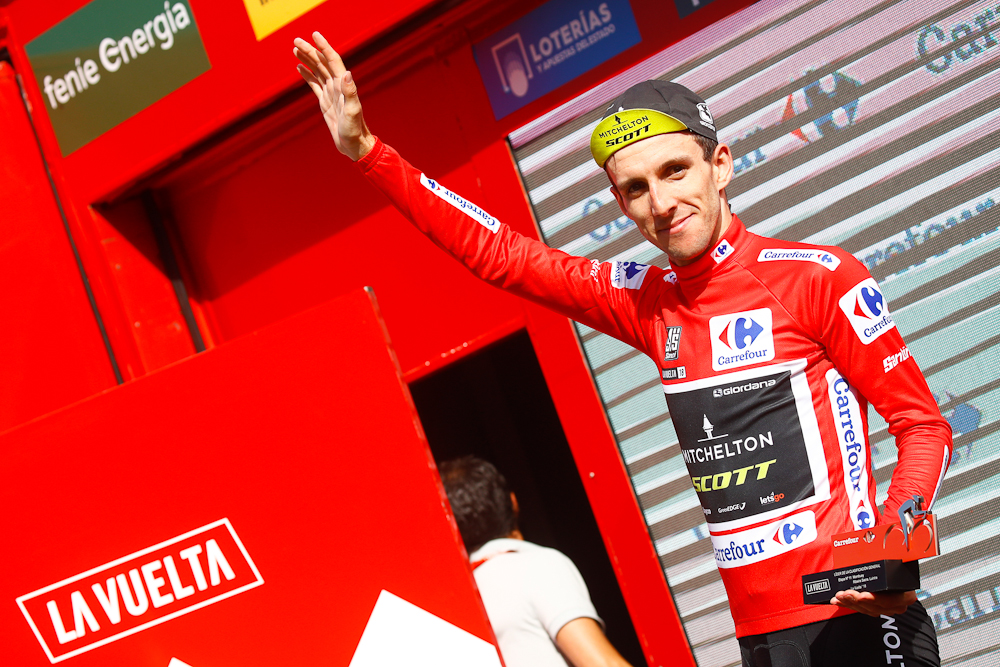
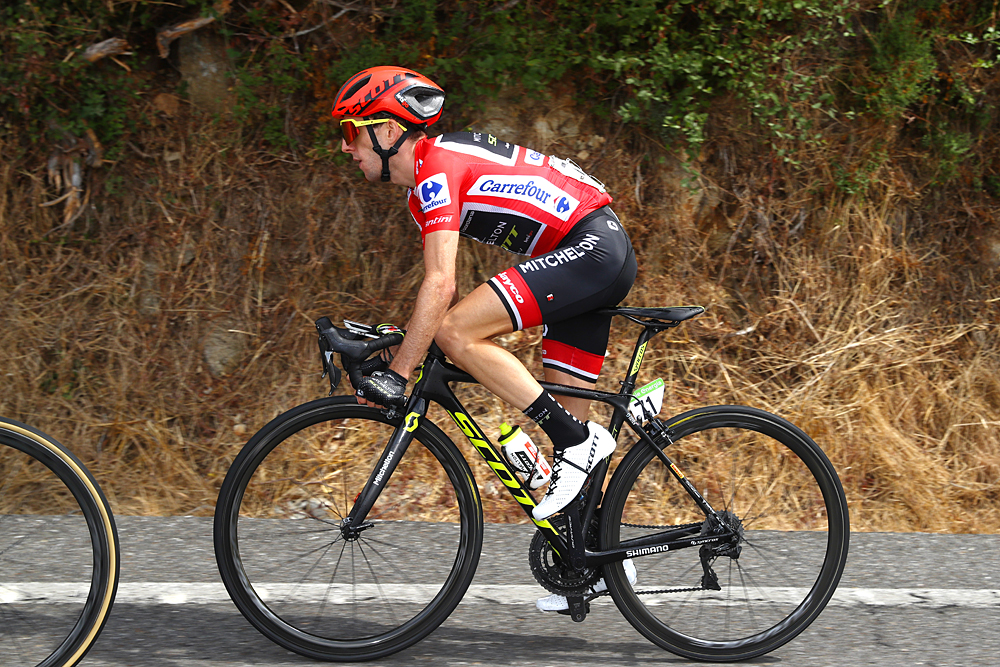
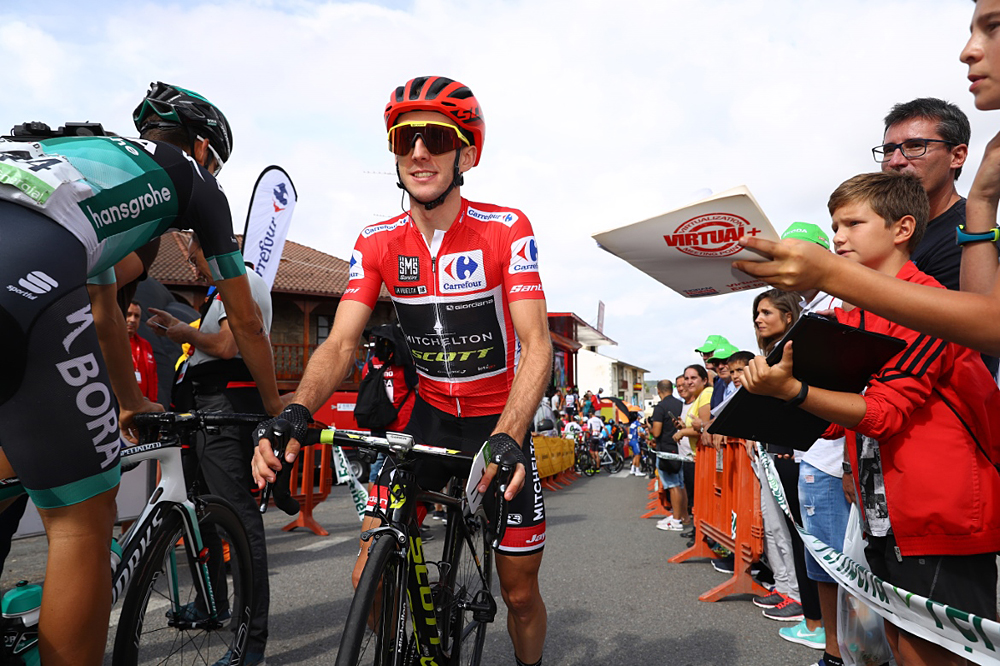
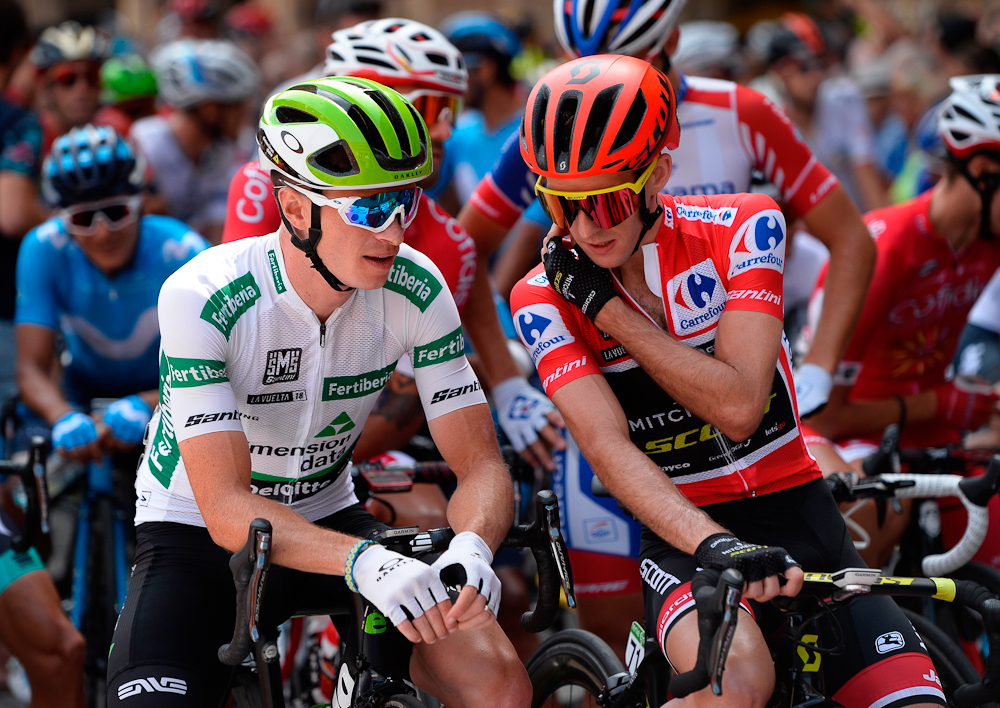
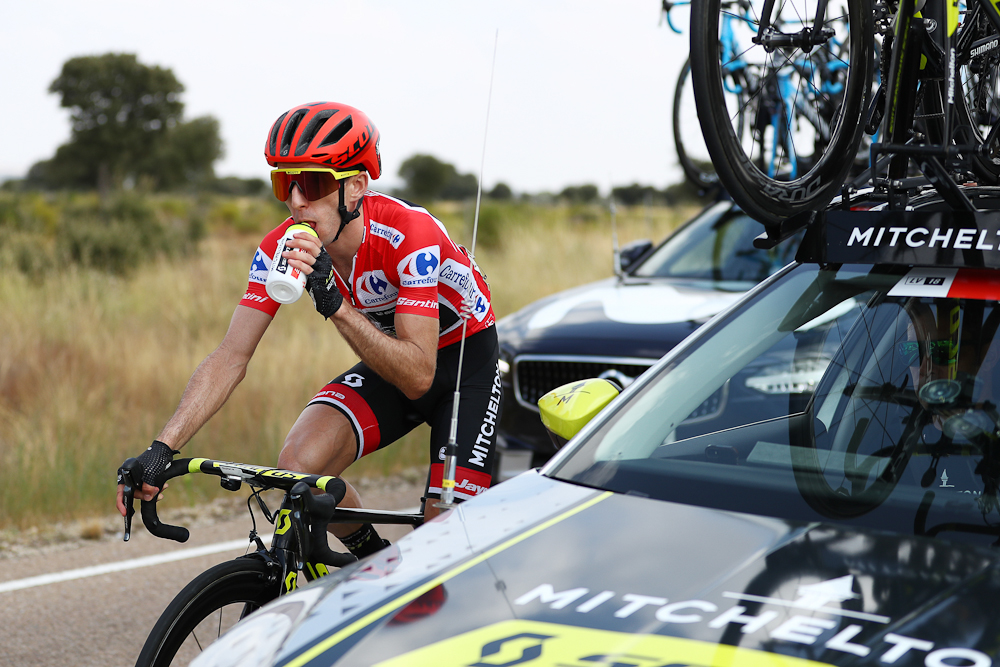
Simon Yates (Mitchelton-Scott) remains narrowly in control of the Vuelta a España's overall lead for a third day after a fraught stage where Thibaut Pinot (Groupama-FDJ) launched a long-range attack.
Yates argued that Pinot represented a danger but that Mitchelton-Scott took a calculated risk.
The leader since the Vuelta's hardest summit finish so far on the Covatilla last Sunday, the Briton said that he had not felt that he risked losing la roja, and that if Movistar chased, "it's because they have to."
"It was a very crazy and fast start, which is what we were expecting, and we tried to control the race as much as possible, for just over 100 kilometres," Yates said.
"The guys did a great job, but we can't control the race every day for 200 kilometres. We did the best we could and that was that."
Asked if he was worried about losing the jersey, Yates replied simply, "No. We were confident."
"The team did a great job for over 100 kilometres, and afterwards Movistar chased because they have to. We don't have enough guys to control the race for over 100 kilometres, and they have the best two guys [Valverde and Nairo Quintana]."
The latest race content, interviews, features, reviews and expert buying guides, direct to your inbox!
Yates remains the leader by one second over Valverde with Quintana at 14. As for Pinot, who is more than two minutes back, the Briton said, "Of course he is a danger and we closed it down several times before he got away."
"We cannot control it all day every day and we had to take some risks sometimes, and that was the risk we took."
Mitchelton-Scott's calculated gamble paid off, too, with most of the favourites, including Yates, only losing 12 seconds on Pinot. Fabio Aru (UAE Team Emirates) suffered a little more, losing nearly a minute on the Frenchman. But for Yates, the losses were minimal.
On top of that, Yates said, he is feeling strong on an individual level. "I felt good on the climbs, I had no problems at all. But I am looking forward to getting into the real mountains to test my legs and my form."
Alasdair Fotheringham has been reporting on cycling since 1991. He has covered every Tour de France since 1992 bar one, as well as numerous other bike races of all shapes and sizes, ranging from the Olympic Games in 2008 to the now sadly defunct Subida a Urkiola hill climb in Spain. As well as working for Cyclingnews, he has also written for The Independent, The Guardian, ProCycling, The Express and Reuters.


